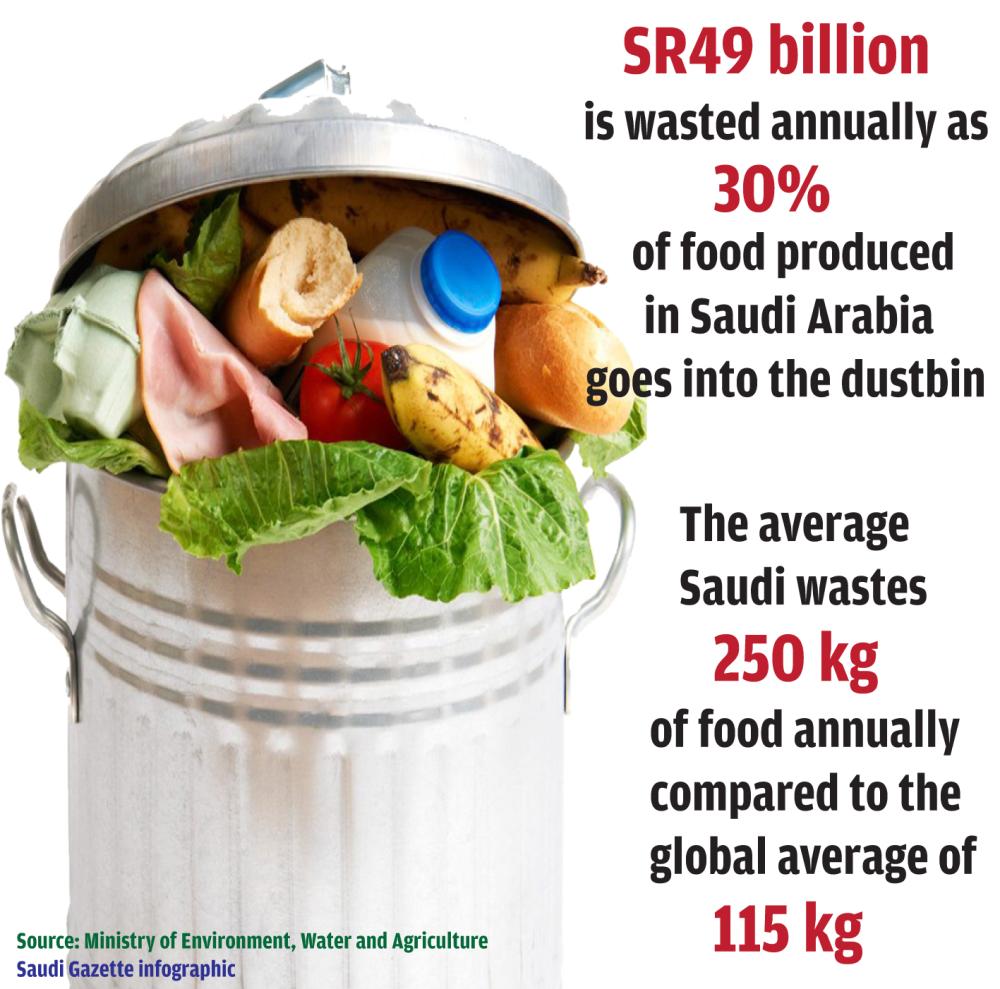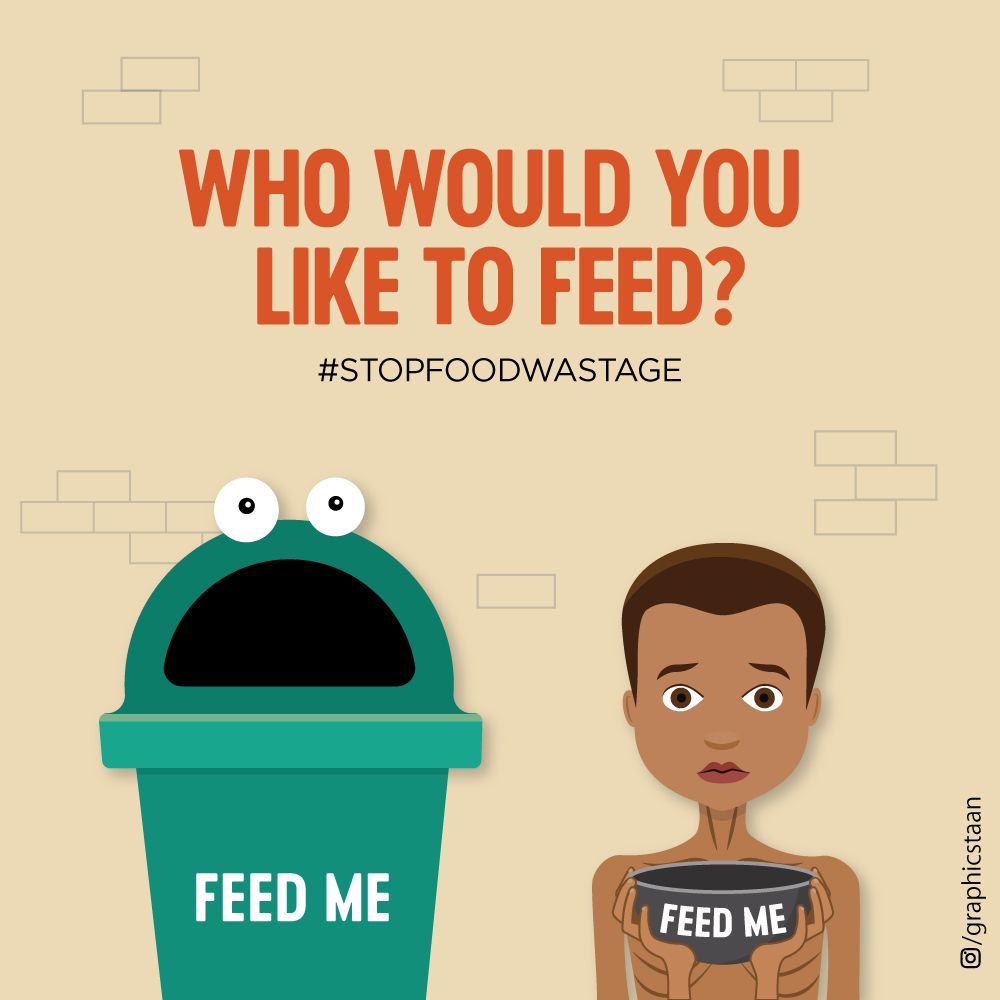“Throwing away food is like stealing from the table of those who are poor and hungry.” – Pope Francis.
Food belongs to mouth not to the garbage bin. Food wastage is the issue that is not much talked about but it needs to be checked in order to give the privilege to the destitute.
Why food wastage is a Problem – On the Global Scale, 13.1% of people are hungry and 33% of the food is wasted There is urgent need for the utilization of the (wasted) Food and providing that food to the needy people. According to the researches and studies till date, 5.6 million children die of hunger every year. 1 in 7 people in the world are undernourished. Nearly 40% of the food produced in the world is never eaten. Food wastage has become a very devastating issue in the world.
The food that is discarded or lost uneaten is referred to as food wastage. Food is wasted at different phases of production, processing, retailing and consumption. Food wastage can be at Industrial or individual level.

Major causes of food waste: Excessive production, excess purchase, poor storage. There can be various reasons for discarding food. But wasting food for any irresponsible excuses are unfair to the poor who can’t afford food like us.
Today’s wastage is Tomorrow’s shortage.
Impacts
- All those groceries in the garbage increase the food wastage annually. Also, one can’t forget the environmental resources that are wasted on growing food.
- Dumped food creates billions of tons of greenhouse gases (major culprits in climate change) and needlessly consumes precious land and water resources.
- Food waste is one of the largest components of solid waste in landfills and open dumps.
Solution !
This much of food wastage is a very sad news .
At Individual level , everyone can make small changes that make a great reduction in the amount of food we throw away each year. While you may not be able to reduce food lost during production, you can certainly reduce food wastage at your personal level of food consumption . Every step taken in the right direction counts :
- Do not buy things you don’t need and that you’re unlikely to actually consume. Buy items only when you have a plan for using them, and wait until perishables are all used up before buying more. Don’t over buy. Eat leftovers.
- Buy products regardless of shape. Many fruits and vegetables are thrown away because their size, shape, or colors don’t quite match what we think these items “should” look like. But for the most part these items are perfectly good to eat, and buying them at a farmer’s market or the grocery store helps use up food that might otherwise be tossed.
- Have other plans. Let’s suppose you buy large amount of food items to make dishes for some party and then party is cancelled or less guests come than the number expected.Then, don’t toss the food , give them to some poor near you or make a back up recipe, which you can eat or store carefully.
- keep a record of the food items you throw and their amount. Next time buy limited quantity so there are no chances of wastage.
- Donate what you won’t use. Never going to eat some canned food items? Donate it to a food kitchen before it expires so it can be consumed by someone who needs it. Check out nearest places this locate a food bank or poor people near you. Donate the gross stuff. Many farmers happily accept food scraps for feeding pigs or adding to a compost heap. To find farms near you, check out one of these resources.
- Educate other people. Sure, nobody likes a to be pointed out. But turns out simply being aware of the issue of food waste can help make people more attentive to wasting less.
Indian scenario – Indians waste nearly same amount of food that United Kingdom consumes – a statistic that may not be so much indicative of our love of the excess, as it is of our population. Still, food wastage is an alarming issue in India. Our street and garbage bins, landfills have sufficient proof to prove it.

Weddings, canteens, hotels, social and family functions, households expel out so much food. According to the United Nations Development Programme, up to 40% of the food produced in India is wasted. About 21 million tonnes of wheat is wasted in India and same situation is with the 50% of all food across the world and never reaches the needy. In fact, according to the agriculture ministry, Rs. 50,000 crore worth of food produced is wasted every year in the country.
We can not always blame the government policies for the problems we are facing today, our culture and traditions are more responsible in this. In India, the bigger the wedding, the larger the party and the more extensive is the waste.
Most of us are unaware that Food wastage cripples a country’s economy to a great extent . If food is wasted, there is so much waste of water used in agriculture, manpower and electricity lost in food processing industries and even contributes to deforestation. Taking all of into consideration, the actual worth of money per year in India from food wastage is Rs. 58,000 crore (estimated).
Government should take measures to include containing wastage in transportation, improve storage facilities & food processing also needs to be sped up so food is saved and wasted less to feed more.
CSR can help by funding the NGOs , other campaigns that working on the motto of Preventing food wastage. Our country have some organizations already but there is requirement for more programs, dedicated to combating food wasted by consumers, retailers, and the hospitality industry.
Source – Amanpreet Kaur, CNI Channel













